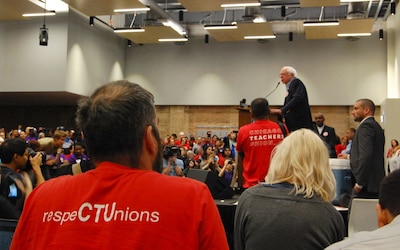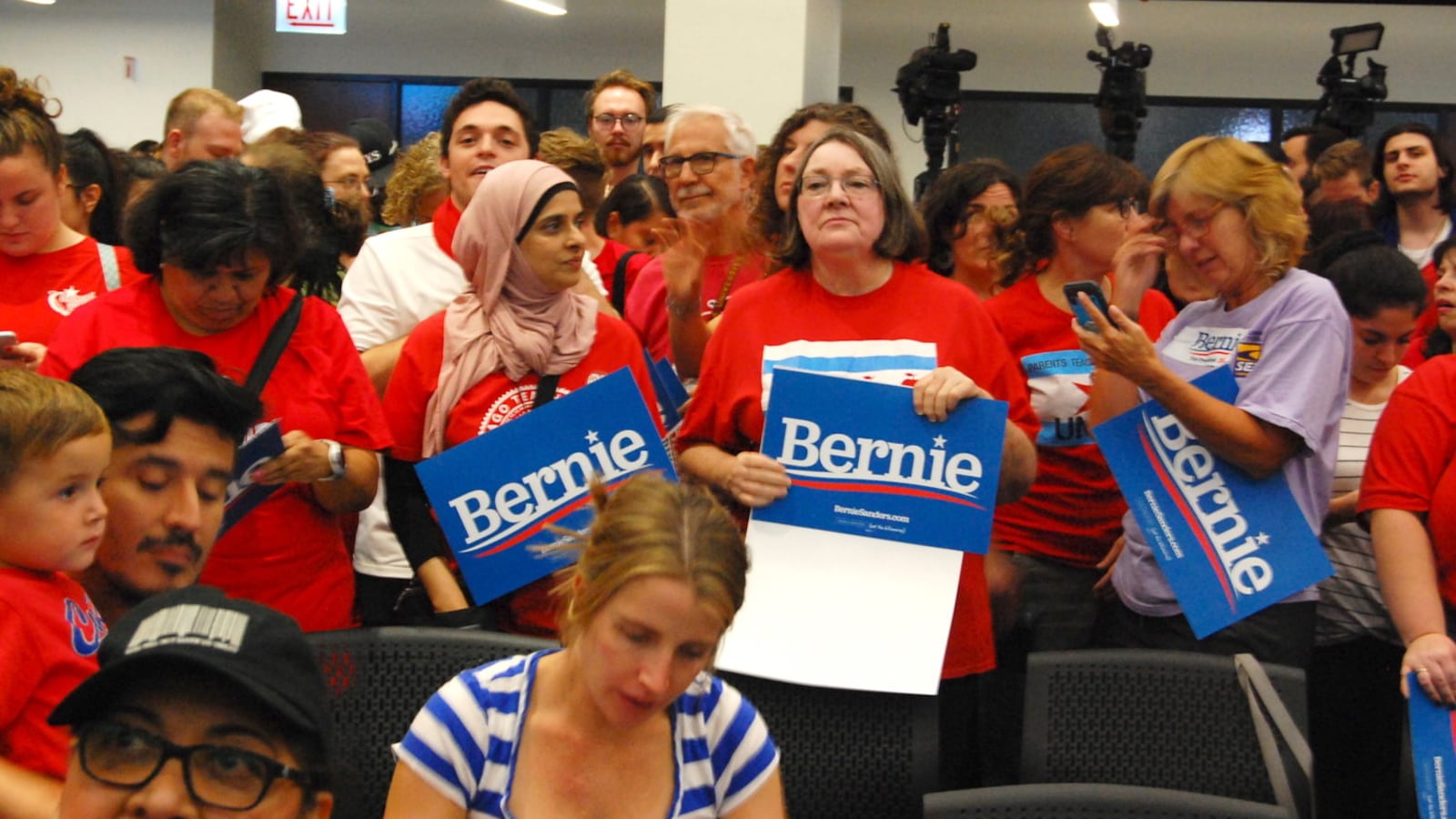CHICAGO — Sen. Bernie Sanders told teachers and school support staff that they were “the conscience of America” during a union rally in Chicago Tuesday night, as the Democratic candidate for president looked to tie the city’s tense, ongoing contract negotiations to broader debates about American teachers and schools.
Sanders called on Chicago officials to hammer out a deal with the Chicago Teachers Union that adds school nurses, social workers, and librarians; reduces class sizes; and blocks the expansion of charter schools in the city. (While charter school growth hasn’t been a focus of these contract talks, the union has negotiated over the issue in the past.)
“You are demanding, and I am demanding, a change in national priorities,” Sanders told hundreds of teachers, support staff, and other union members at the teachers union’s packed hall.
Sanders’ demands for Chicago teachers echoed ideas he has put forth on the campaign trail, including a moratorium on the use of public funds to expand charter schools and directing more money to schools serving low-income students. The event was also the latest effort by a Democratic presidential candidate to latch onto the #RedforEd movement, which saw teachers strike or walk out in states across the country in 2018 and 2019. Some see the Chicago teachers union’s seven-day strike in 2012 as an early step in that movement.
Chicago teachers are voting this week on whether or not to authorize a strike. If three-quarters of the union’s some 25,000 members vote in favor, a strike could happen as soon as Oct. 7.
Chicago Mayor Lori Lightfoot, who oversees the city’s schools, has offered the teachers union a 16% raise over five years. The sticking point hasn’t been raises, but concerns about school staffing and class sizes. The teachers union wants Lightfoot to put in writing promises she’s made about adding more social workers, special education case managers, and school nurses.
Before the rally kicked off, Jessica Suarez Nieto, who teaches sixth-grade social studies on the city’s South Side, said she saw the Chicago negotiations as part of a larger national movement for “education justice” reflected in Sanders’ platform.
“A lot of our demands do align,” she said. “Bernie at least pushes to do something that’s not reformist.”
During his speech, Sanders repeated his campaign promise to triple funding for Title I, the federal program that directs money to schools with students from low-income families, saying “too many of our kids are going to schools that are inadequately funded.”

Sanders also called for more funding for after-school programs, technology in schools, and school building maintenance — an issue that’s plagued Chicago and other large city school districts.
And he drew attention to his long-standing campaign pledge to make public colleges and universities tuition-free, noting that since he discussed the proposal in Chicago during the last presidential campaign four years ago, at least a dozen states have passed legislation enacting some kind of free college.
Silvia Gonzalez, a visual arts teacher at Franklin Fine Arts Center, a magnet school in the city’s Old Town neighborhood, said she decided to attend the rally after Sanders posted a message of solidarity with the Chicago unions representing teachers and support staff on Twitter.
Sanders, like the Chicago’s teacher union, had the ability to mobilize people, she said. “It’s so exciting to have this kind of movement develop so strongly with a candidate that seems to really stand for education,” she said.


